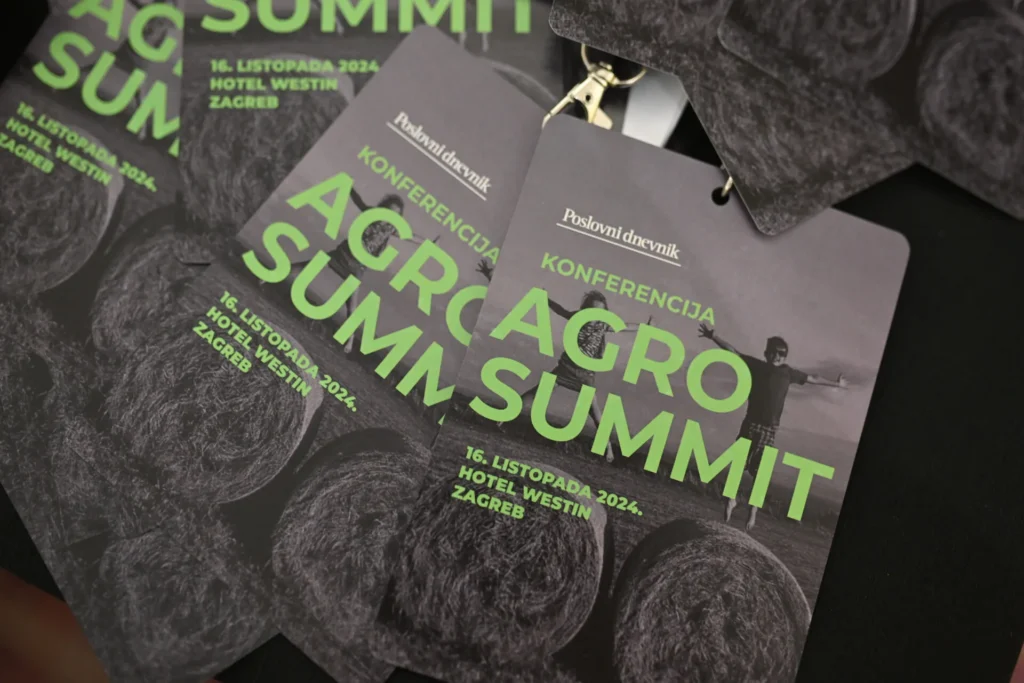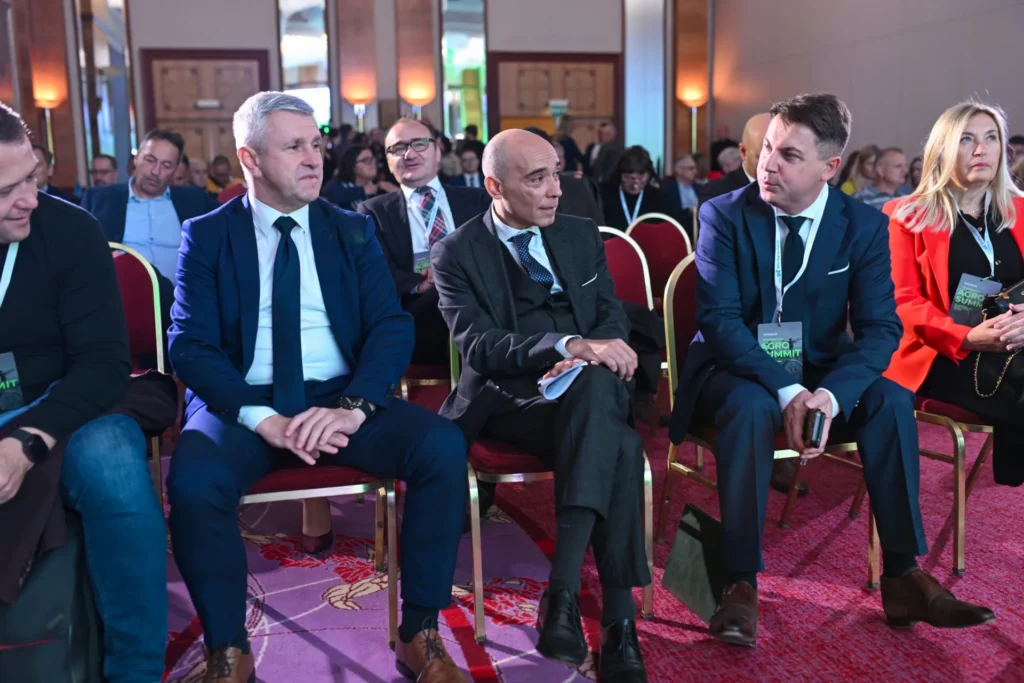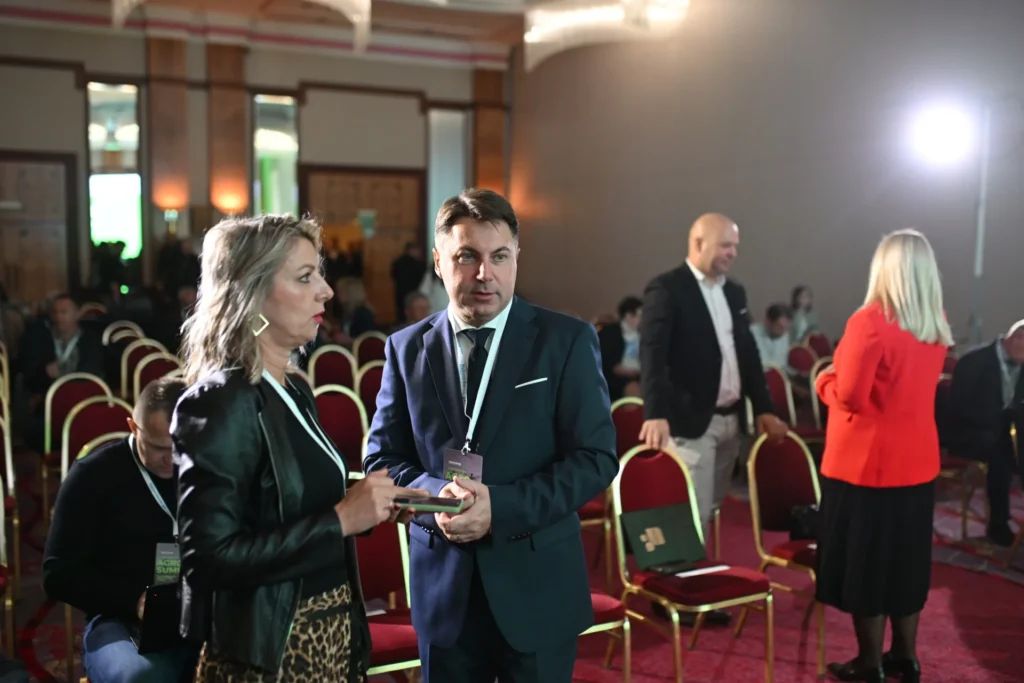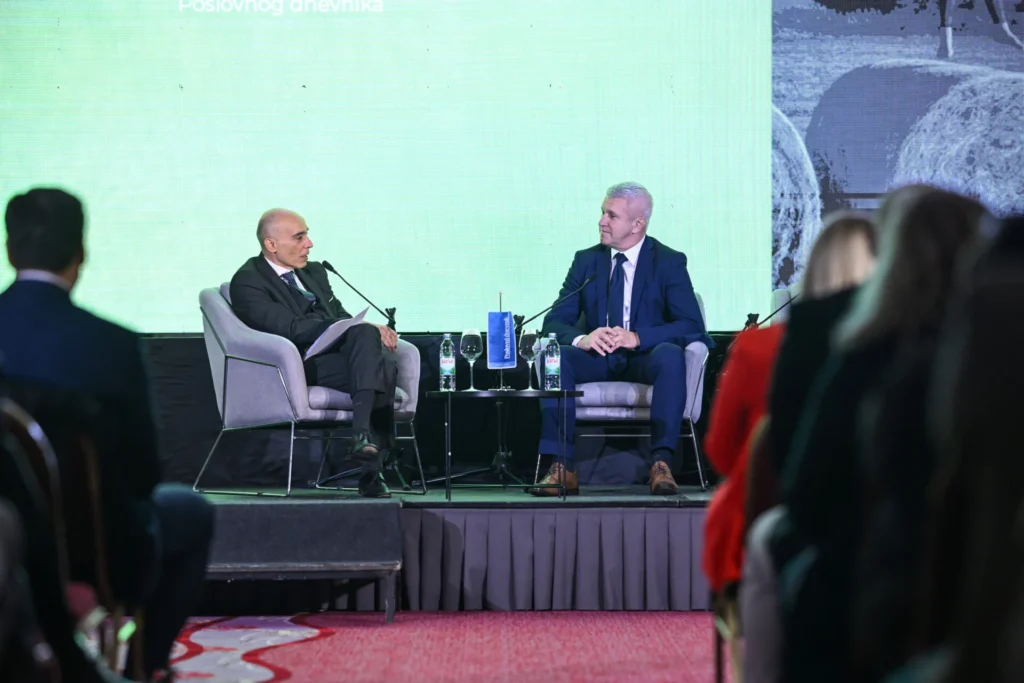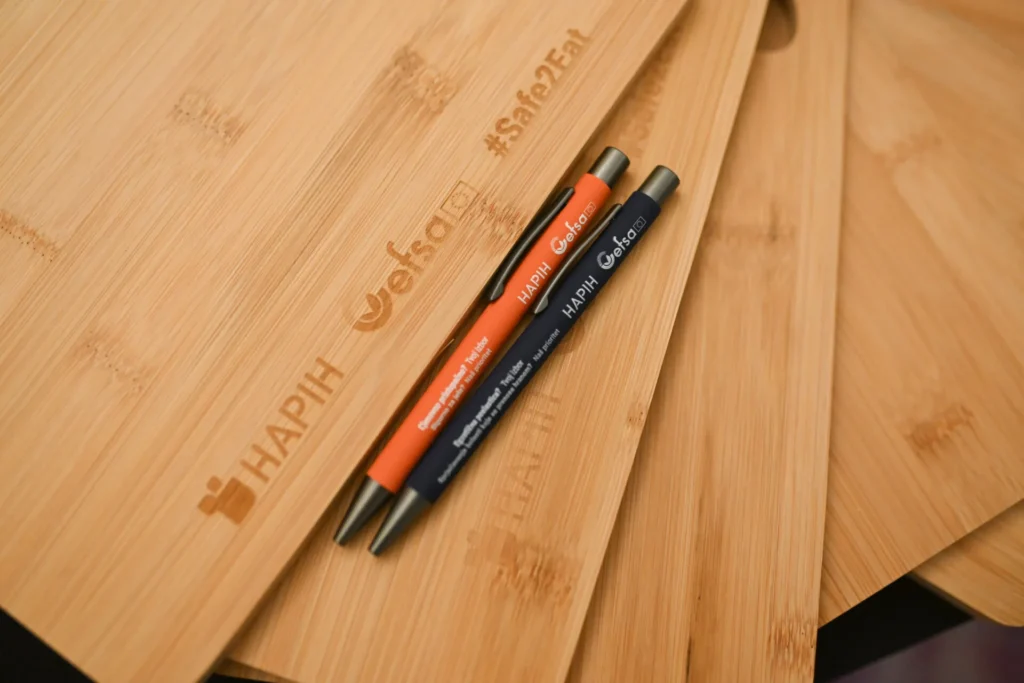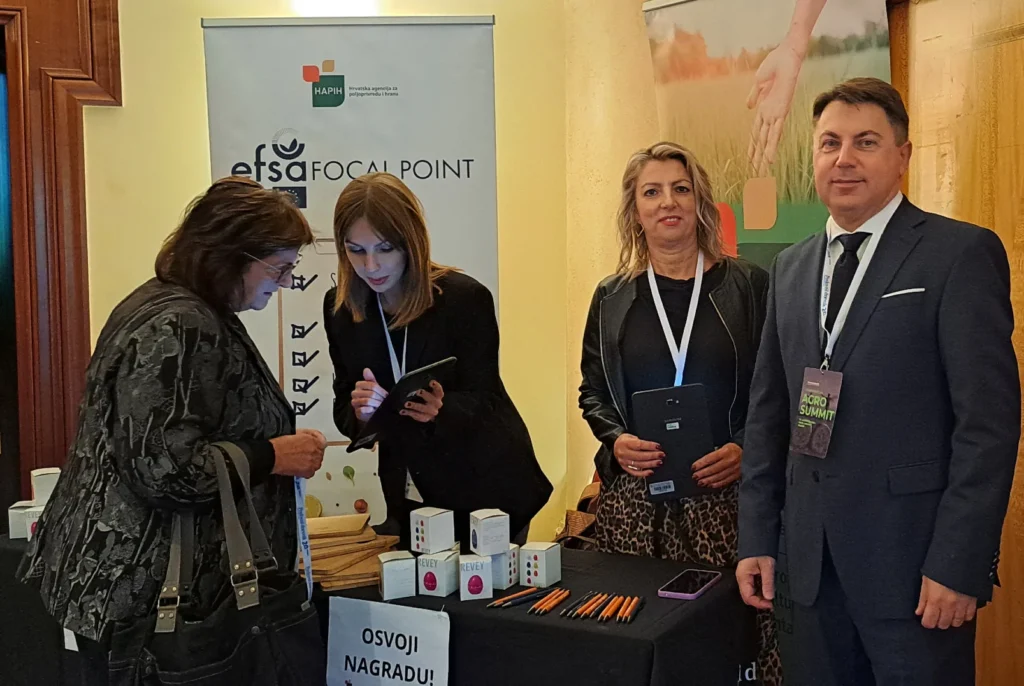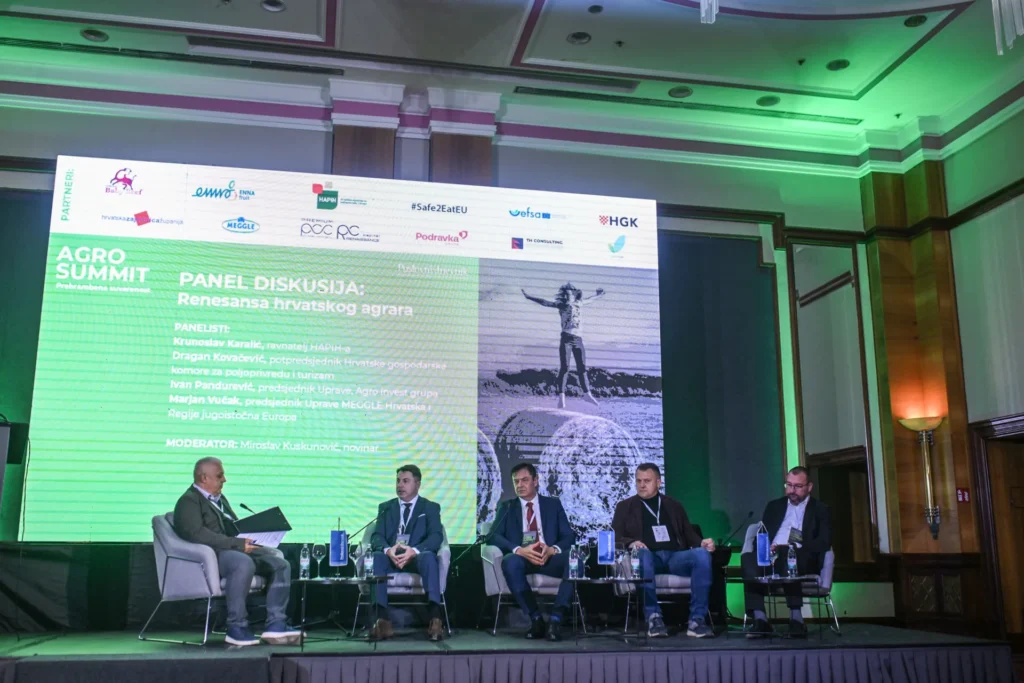Food sovereignty was the overarching theme of this year’s Agro Summit, where the organizer, Poslovni dnevnik, on World Food Day, October 16th, gathered renowned businessmen and representatives of state institutions to exchange views and opinions on the current and future state of Croatian agriculture and large challenges we face in times of global change, from climate disasters to political turmoil. What are we good at, and where can we make a breakthrough and how can we do it? How can we mobilize all forces to have competitive food production, what can we learn from the best agricultural countries and with which products in the future can we enter the global market and prove ourselves through the application of new technologies, smart agriculture, digitization and strong investments and processing, and how can we encourage young people to engage in agriculture – these were some of the questions that the organizers have prepared for the visiting experts in the 1 on 1 conversation, the panel discussion “Croatian agricultural renaissance”, the presentation “Sustainable agriculture in the conditions of healthy food production” and the 5 for 5, series of five-minute interviews.
The wave of changes will be led by young farmers
Tugomir Majdak, State Secretary in the Ministry of Agriculture, Forestry and Fisheries recalled that the government acted with price restrictions in relation to this sector of the economy, and the line ministry intervened to direct the necessary funds to help farmers face various challenges. In a conversation with the chief editor of Poslovni dnevnik Vladimir Nišević, among other things, he pointed out that the ministry defined the needs in strategic sectors – the fruit and vegetable sector and livestock breeding, in which sectoral tenders will be held until 2027.
„We aim to increase sovereignty in strategic sectors, but also produce safe food.“, stated the state secretary Majdak, while emphasizing the strategic importance of agriculture in Croatian economy.
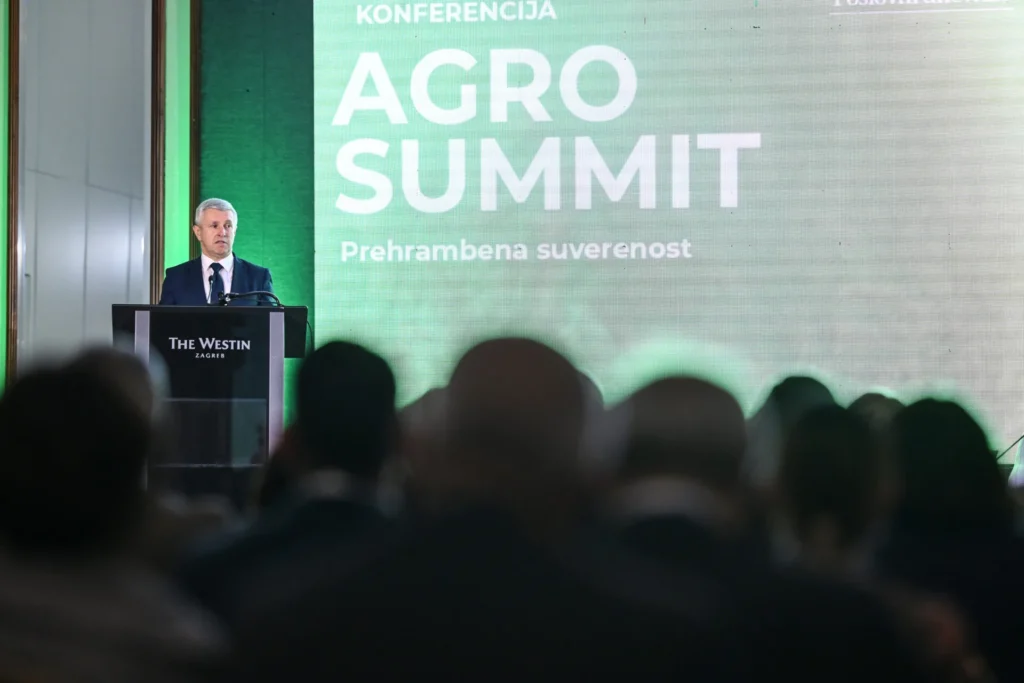
He also pointed out the importance and necessity of association of farmers in order to be able to achieve their goals more easily and he praised the associations of producers, number of which is increasing, so that in the last eight years, 25 of them have been approved.
„We are not self sufficient in all sectors, nor will we strive for it, but we must be self sufficient in sectors of strategic importance“, said Majdak and added how he believes that the wave of innovation and changes will be led by young farmers and the ministry will obtain funds for generational renewal.
Sustaining productivity by investing in technology
Krunoslav Karalić, acting director of HAPIH, participated in the panel discussion on the Renaissance of the Croatian Agriculture, along with Dragan Kovačević, Vice President of the Croatian Chamber of Commerce for Agriculture and Tourism, Ivan Pandrurević, President of the Management Board of Agro Invest Group and Marjan Vučak, President of the Management Board of Meggle Croatia and Southeast Europe Region.
Field production is stable. Fruit production is also stable, with a drop of only 0.5%. Unfortunately, there are different trends in livestock breeding and cow’s milk production, where a drop of up to 20% is recorded, said Krunoslav Karalić, describing the situation in Croatian agriculture.
Dragan Kovačević has emphasized low productivity and weaker investments into brining innovation in technology as some of the problems, while the subsidies are sufficient.
Marjan Vučak from Meggle company in Croatia has confirmed the decline in milk production ever since Croatia has joined the EU and explains how the company had been shut down due to market conditions in Croatia. Despite this, Vučak was pleased with the recently adopted dairy revitalization program. However, the company is closely monitoring the market has no intention of restarting production in Croatia for the time being.
Some of the production challenges were pointed out by Ivan Pandurević, the president od the Management Board of Agro Invest Group, which has 11 agricultural-food production companies in its portfolio. Pandurević emphasized how legal safety is key and has commented on the problem of cooperant insurance, as well as aid payments per hectare, instead od payments per yield, while warning that this is not only a concern in Croatia, but in Europe as well.
In order to fulfill the demands of green transition, new animal welfare standards and keep the production productivity in times of more frequent and unpredictable weather conditions, it is necessary to continuously invest in technology.
„Larger systems have more available technology and knowledge, but smaller systems tend to be faster and more agile“, said Pandurević and added how the size of the systems should not be discussed, but rather their productivity and success rate.
Renaissance of fruit and vegetable production, livestock breeding and production investments
When asked by the moderator Miroslav Kuskunović which sectors could have a chance for a renaissance of agricultural production, fruit and vegetable production and livestock breeding were emphasized. Also, investments in production were mentioned in order to reduce the import of expensive finished products and cheap export of raw materials.
Acting director Karalić sees a possibility for renaissance in the production of meat, milk, vegetables and fruit, and we can achieve it with a whole range of tools, primarily irrigation. He warned that more than 40 percent of our soils are degraded, and approximately 50 percent of our soils are acidic, and that the decline in humus content in the soil is worrying, so investments in agrotechnical measures to improve soil fertility and the application of good agricultural practices are necessary.
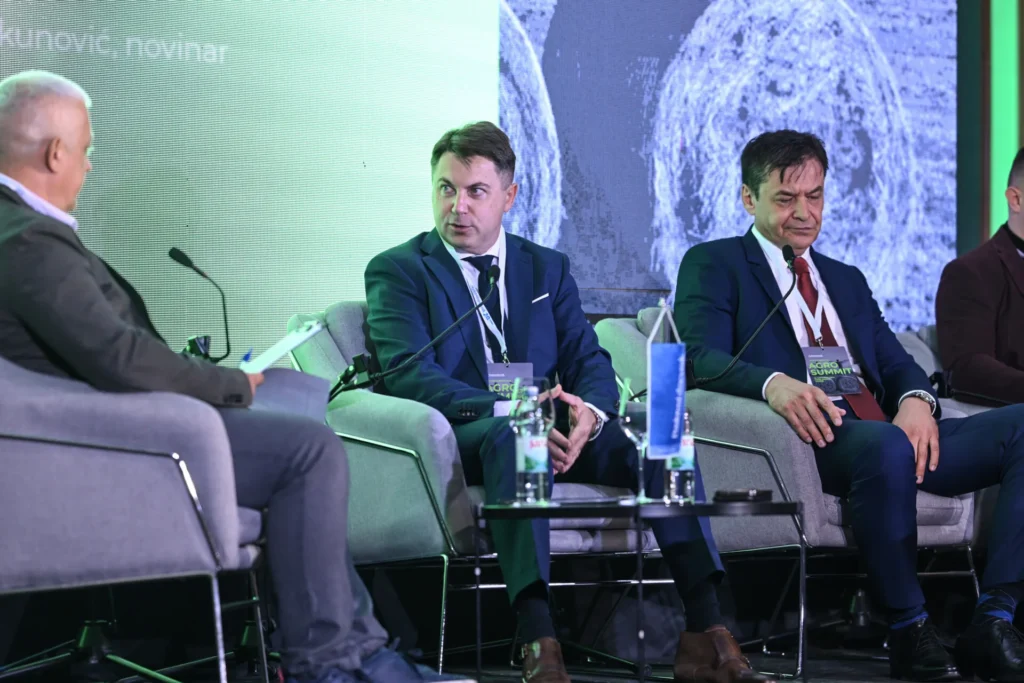
“In the foreground is the application of knowledge and expertise. We must work on the preservation of natural resources, soil as the most important agricultural resource, on consolidation of land, agro-ecological zoning on which HAPIH is working for the purpose of regionalization of agricultural production, and we certainly need to work on investments in processing, which will be key. There will be money for that and it should be directed wisely”, said Karalić and stated that, for example, out of the 3.8 billion euros from the strategic plan, 1.9 billion is intended for direct payments, and 1.8 billion for rural development.
“In order to reverse the trend of exporting cheap raw materials towards production, we must invest in production, processing, storage and distribution centers, as well as in knowledge,” concludes Karalić.
Since Croatia joined the European Union, subsidies to farmers for production have increased 2.8 times, while simultaneously, the volume of production has been reduced by five percent in the same period, stated Dragan Kovačević, vice president of the Croatian Chamber of Commerce and Industry, and he agreed that regionalization of agricultural production is needed on the basis of which we would know it is better to direct the support that today is scattered on numerous producers and activities and does not achieve the desired effect. He also warned of the need to change the Law on Agricultural Land, which does not take into account the fact that certain companies have invested in land for years to create production-technological units and that confiscation of that land simultaneously destroys serious agricultural production.
Safe2Eat at AgroSummit
In the context of food production, not only of sufficient quantities but also of safe food of good nutritional value, the participants of Agro Summit were presented with the Safe2Eat campaign of the European Food Safety Agency (EFSA), which HAPIH implements at the national level. Once again, HAPIH team used the opportunity to educate the conference participants with an interesting short quiz with appropriate questions regarding food safety and reducing food waste.
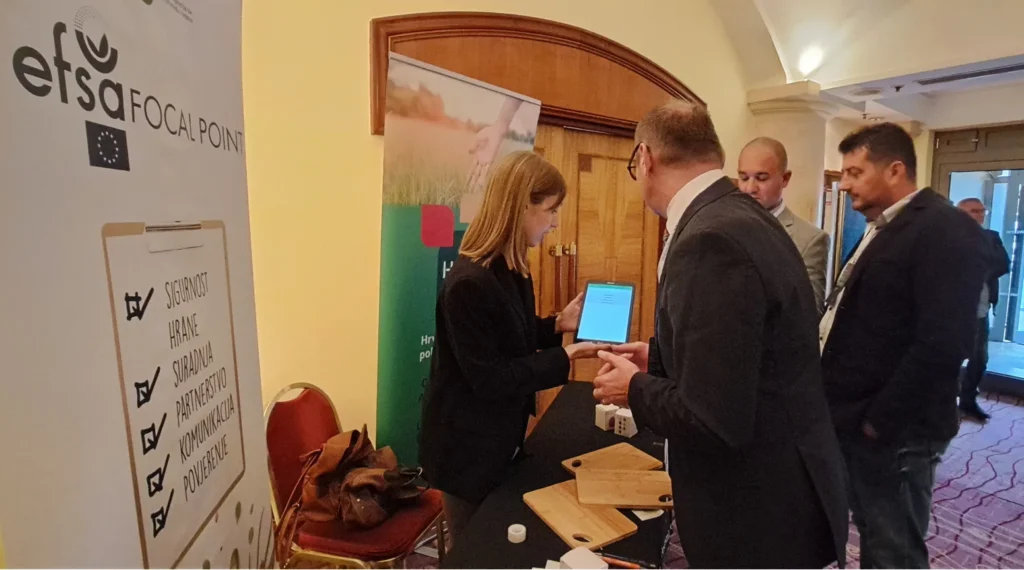
How much food is being wasted on a yearly basis by an average Croatian citizen; which foodstuff does not require expire date labelling according to European legislation; to a potential attack of which enterobacteria are you being exposed to while eating a suspicious homemade mayonnaise or steak tartare?, were the questions which the participants of Agro Summit had the opportunity answering and find out more about statistics regarding food waste, food labelling and foodborne illnesses.
In addition to interesting facts about food, the respondents were also rewarded with useful promotional materials of the campaign, including a practical kitchen timer or a kitchen board marked with #Safe2EatEU as a “guide” to the official pages of the campaign and announcements about the campaign on social networks with the aim of informing about its key messages.
Photos: Poslovni dnevnik/Pixsell i HAPIH
